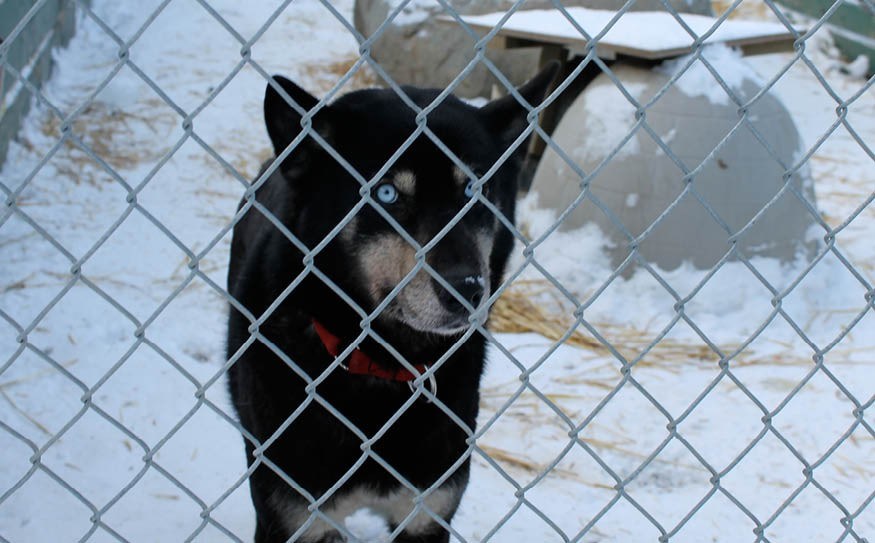Crown counsel today (April 20) announced charges of animal cruelty against Bob Fawcett, former general manager of the Whistler-based Howling Dog Tours, for allegedly causing unnecessary pain and suffering to a number of sled dogs in April 2010.
His first court appearance is scheduled for May 24 in Pemberton.
If convicted he faces up to five years in jail and/or up to a $10,000 fine.The Criminal Justice Branch of the Ministry of Justice charged Fawcett with causing unnecessary pain or suffering to a number of dogs, contrary to section 445.1(1)(a) of the Criminal Code. It was was sworn in British Columbia Provincial Court in North Vancouver.
"In order to move forward with criminal charges in the case, we had to produce clear evidence linking an individual to the crime as well as physical proof that the animals suffered unnecessarily, as outlined in the Criminal Code," said Marcie Moriarty, general manager of cruelty investigations for the BC SPCA, who announced the charges in an email.
"Without that verification we could not present a case to Crown counsel."
Gruesome details of the killings were leaked to media in January 2011 after Fawcett filed a successful claim with WorkSafe BC, saying the cull left him with post-traumatic stress disorder.
The BC SPCA immediately launched an investigation and last May a team of BC SPCA constables, veterinarians and forensic scientists completed the grisly task of exhuming the bodies of 54 sled dogs from the grave near Whistler.
Initial reports had the cull of the dogs as high as 100, but exhumation revealed 54 remains.
The story captured headlines across the globe. Many in the resort at the time were concerned how it would impact tourism.
Evidence gathered at the site formed the basis for a BC SPCA report submitted to Crown counsel in September 2011 recommending charges against Fawcett. The report contained more than 1,000 pages of evidence, including extensive forensic evidence collected at the gravesite using state-of-the-art scientific techniques.
"Our report is the culmination of thousands of hours of work, not only by our own SPCA constables, but by some of the best forensic scientists in North America who assisted us with the collection of the evidence," said Moriarty.
At the time it was estimated that the investigation would cost $225,00, with $100,000 coming from the government. The rest had to be raised by the SPCA.
Many of the experts at the exhumation site donated their services.
"It was our duty to carry out a proper investigation into these allegations, as we would with any other case," said Moriarty, adding that the BC SPCA also recognized that the case would have far-reaching implications for working animals in B.C. and across Canada.
"This investigation was about uncovering the facts in a particular case of alleged animal cruelty that shocked people around the world," she said. "But it was also about ensuring that all sled dogs and other working animals are protected from suffering and abuse."
The BC SPCA is the only animal welfare organization in British Columbia with the authority to investigate complaints of animal cruelty and enforce provincial and federal laws that protect animals from abuse, suffering and neglect. The organization gets their authority under the Prevention of Cruelty of Animals Act and reports to the Ministry of Agriculture and Land. SPCA constables are appointed pursuant to the Police Act.
The BC SPCA was a key contributor to a government task force that was created last year to examine ways to ensure more humane treatment for sled dogs and to a new sled dog code of practice that was adopted in February 2012.
The regulations allow sled dog operators to kill healthy dogs, but only after efforts have been made to find homes. The regulations also indicate the highest standard is to allow a veterinarian to carry out the euthanization. If a vet can't do it then someone authorized to do so using a firearm and following guidelines provided by a registered vet is also permitted. Industry representatives, veterinarians and the B.C. SPCA worked together to create the new regulations.
The new rules cover the containment and transportation of dogs, health care, breeding, working conditions, record keeping, life planning and the killing of sled dogs.
Some of the new protection regulations are in effect now. The sections of the regulation dealing with containment, record keeping and life planning will come into effect on Oct. 1.
To further protect animal welfare in B.C., the province and the sled dog industry formed the Professional Mushers Association of BC. According to the Association, its mandate is to: join and network commercial sled dog tour operators in B.C. for the purpose of information exchange, professional support, and operator unity; to be leaders in establishing and maintaining standards for kennel guidelines, sled dog care, and mandatory operator guidelines in B.C.; and to inform and educate the government, as well as the public, on the working sled dog and professional tour operations in B.C.
The sled dog operation at the centre of animal massacre allegations is now in the hands of a not-for-profit foundation dedicated to improving animal welfare called "The Sled Dog Foundation." The new foundation owns and manages all operations and plans to use proceeds to improve sled dog welfare.
The BC SPCA is planning a memorial for the slain sled dogs this summer. "We have handled the remains of the dogs with the utmost respect and dignity and will be releasing details of the memorial soon," said Moriarty.




